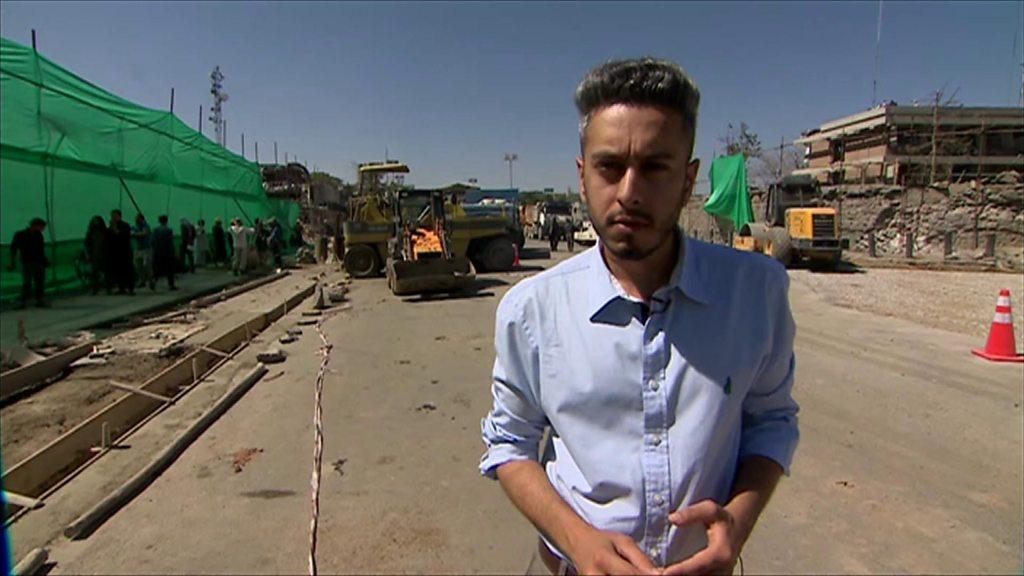Kabul bomb: Protesters shot dead at march in Afghan capital
- Published
Police open fire during protests in Kabul
At least five people have died in the Afghan capital Kabul, officials say, after police opened fire on protesters demanding the government step down in the wake of a devastating bomb attack.
Crowds rallied near the site of Wednesday's blast, chanting anti-government and anti-Taliban slogans.
Police in riot gear also used tear gas and water cannon to block them from the presidential palace.
About 90 people died in the bomb blast, one of the deadliest in Kabul in years.
One of those killed during Friday's demonstration was reportedly the son of a prominent politician. Other reports put the death toll at seven, with several other people wounded.
No group has said it carried out Wednesday's bomb attack.
Afghan intelligence officials have pointed the finger at the Haqqani network - a Taliban affiliate - and have alleged support from Pakistan. Pakistan has roundly rejected the claims, calling them "baseless".
The Taliban denied any role and there has been no comment from so-called Islamic State militants, who are usually quick to claim attacks.
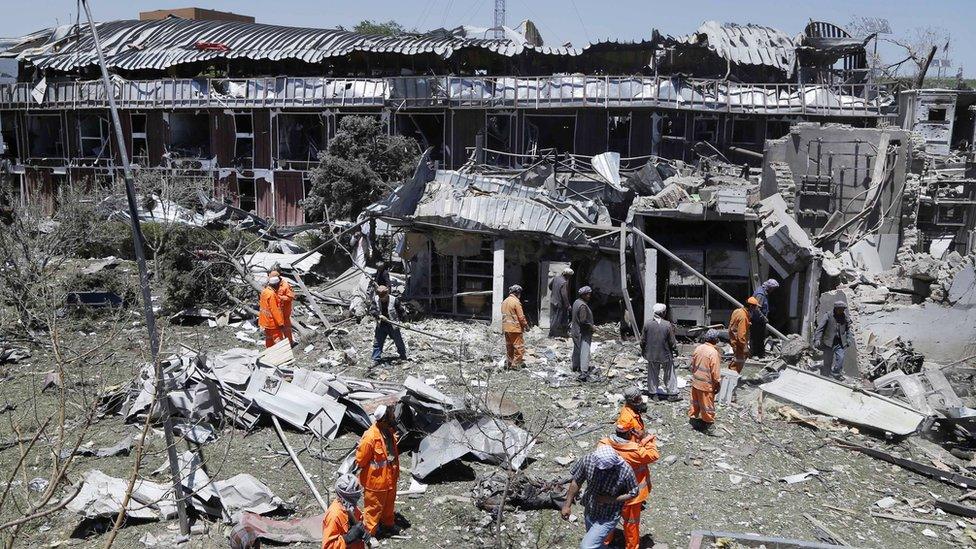
The explosion damaged buildings and cars over a wide radius
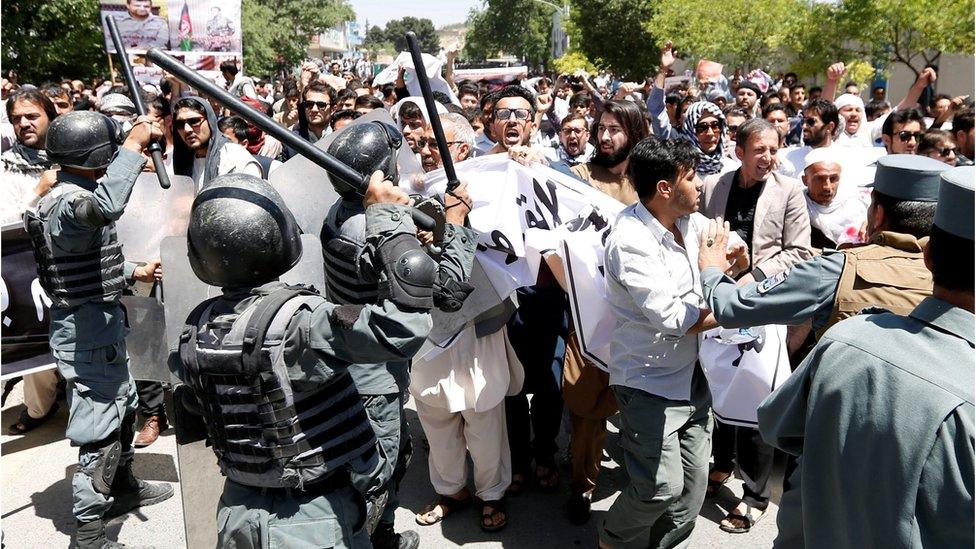
Protesters are angry about the lack of security
The blast - caused by explosives packed in a tanker - took place close to the heavily-guarded diplomatic area. Most of the victims were Afghan civilians, and hundreds of people were injured.
There have been a series of attacks in the capital and elsewhere in recent months.
Many of the more than 1,000 protesters on Friday accused the government of failing to address security issues.
"The international community has to put pressure on them and force them to resign," Niloofar Nilgoon, a protester, told Reuters news agency. "They're not capable of leading the country."

'The government is sleeping' - The BBC's Secunder Kermani in Kabul
Outside a hospital run by an Italian NGO, Afghans waiting to see their injured relatives blamed Pakistan for the blast. One said: "The ISI [Pakistan's intelligence service] are sending suicide attackers here… Pakistan has looted our country for years."
But their strongest criticism was for their own government. "Whoever is responsible for the attacks, it's the job of our government to stop them," one person said.
English teacher Nawaz Hafizi ran for 40 minutes through Kabul to visit his brother in hospital on the day of the attack, thinking he was about to die. His brother now seems to be recovering but Mr Hafizi is scathing about the Afghan government.
"The government is sleeping. All their families are living abroad, relaxing. It's only the poor people here who are killed, no-one else."

Another man told AFP news agency that leaders were "doing nothing to stop this carnage".
"We want justice, we want the perpetrators of the attack to be hanged," Rahila Jafari, a civil society activist, said.
Some of the protesters were throwing stones, one report said, and a car was flying a banner that read "Ghani! Abdullah! Resign! Resign!" - a reference to Afghan President Ashraf Ghani and Chief Executive Abdullah Abdullah.
Builders work to repair Kabul's bomb-struck Green Zone
More than a third of Afghanistan is now said to be outside government control.
The US has about 8,400 troops in Afghanistan, while another 5,000 from Nato allies are in the country.
The Pentagon has reportedly pressed US President Donald Trump to send thousands more troops to Afghanistan after a top commander warned of "stalemate" in the fight against the Taliban.
- Published2 June 2017
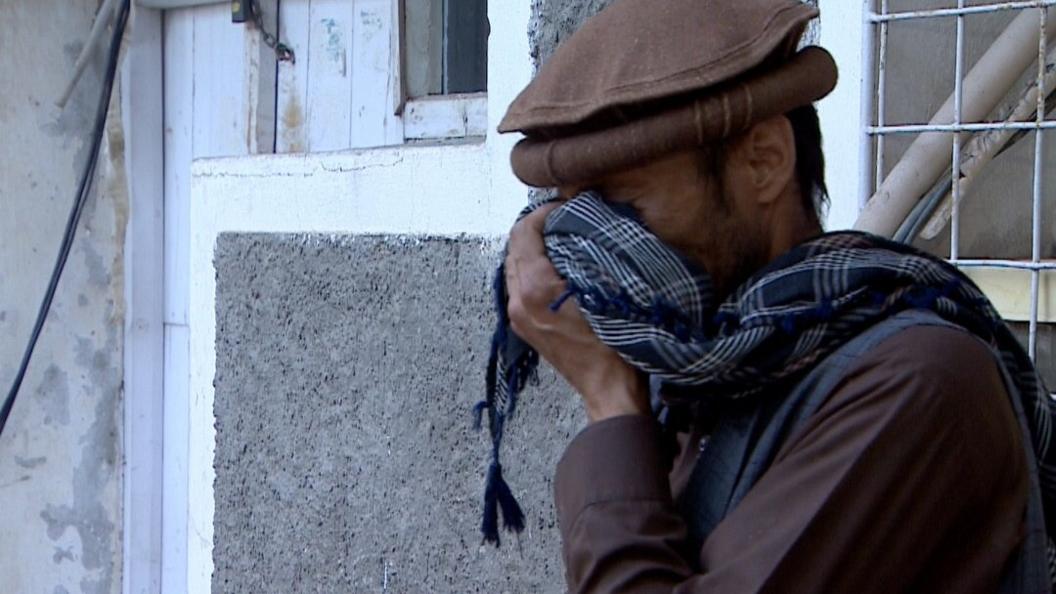
- Published1 June 2017

- Published12 January 2017
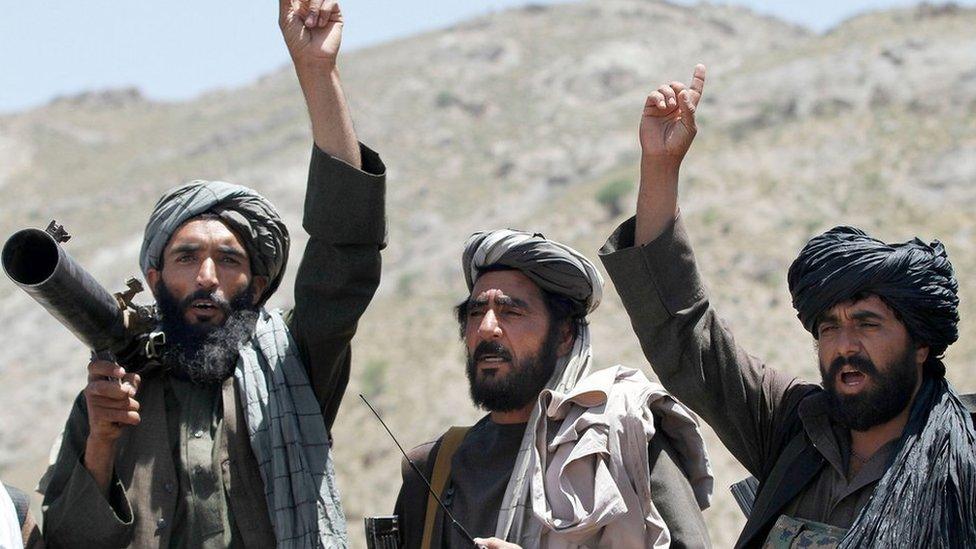
- Published1 June 2017
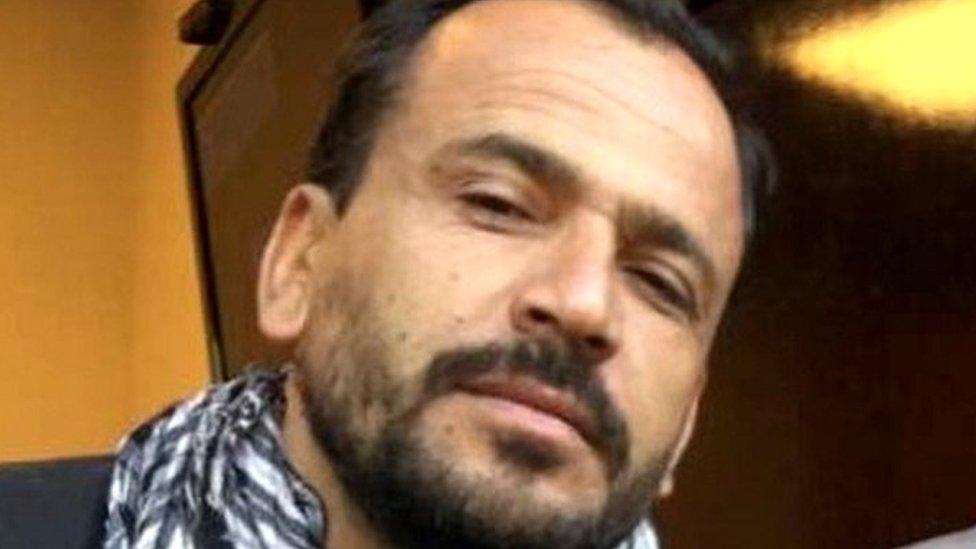
- Published25 February 2017
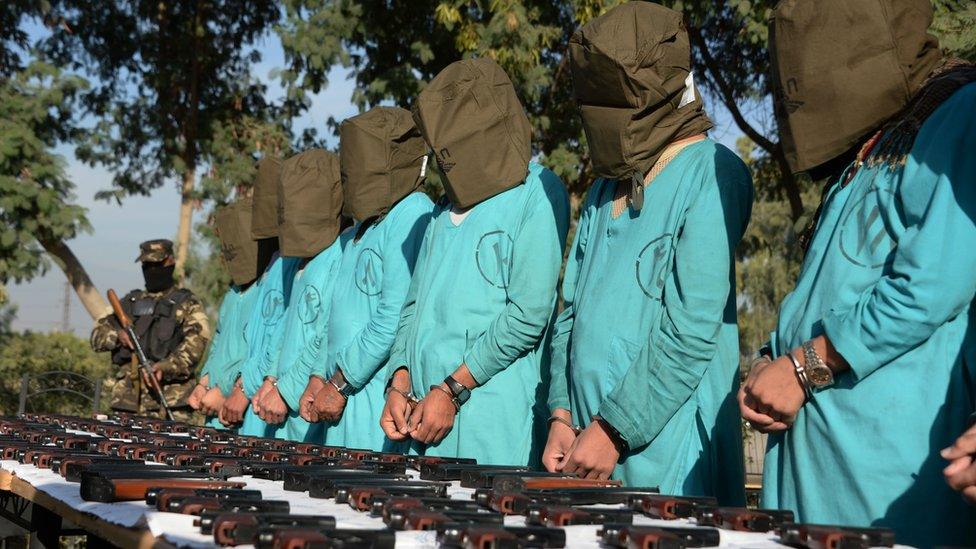
- Published31 May 2017
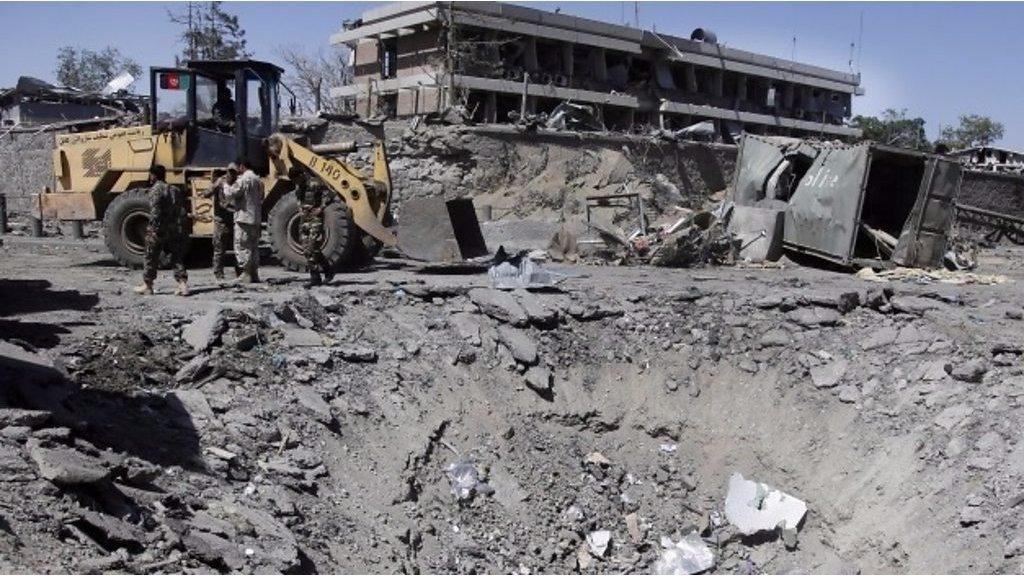
- Published1 June 2017
